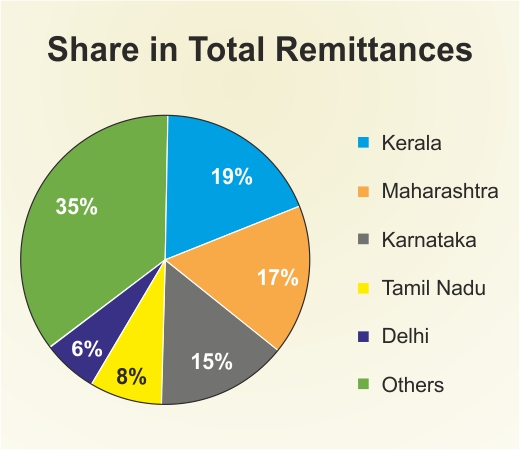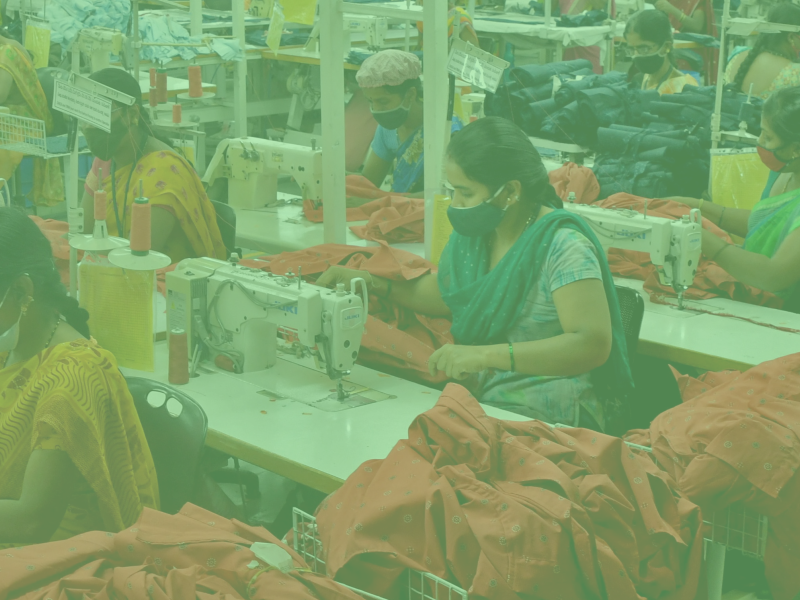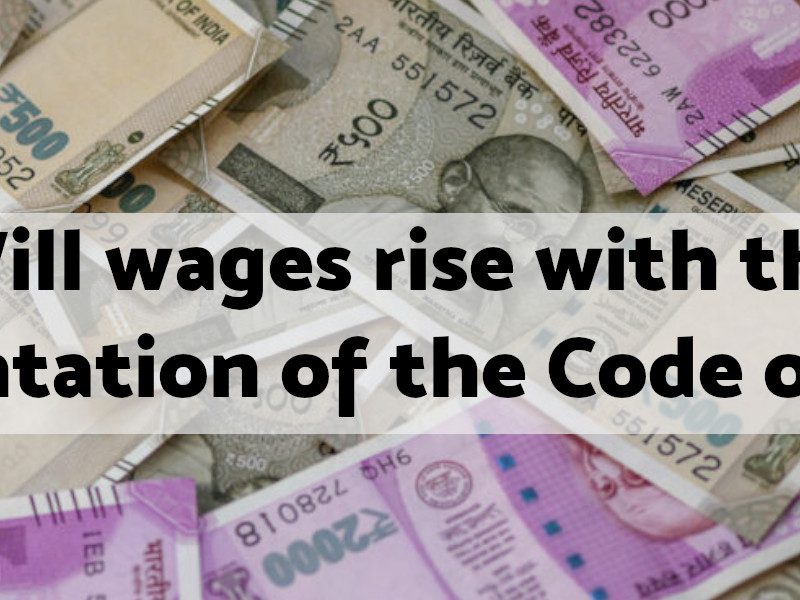Some people believe there is no relation between lung cancer and tobacco because many people get cancer without consuming tobacco all their life. It’s true. Some people also believe there is no connection between wearing a helmet while riding a motorcycle and dying in an accident because many people die in a road accident even if they wear a helmet. This is true as well. Some people also believe that there is no relation between people migrating across borders and governments and employers because people migrate looking for their own fortune. This too is true. But all these examples as bizarre and varied as they may sound are all linked by one common strand: we believe what we want to believe or are made to believe. The belief is not based on facts. It is based on what we like to believe. And when we believe what we like, it is very difficult for anyone to convince us otherwise. Thus when we want to smoke a cigarette or ride a bike without a helmet, no medical statistics is going to convince us otherwise. Immigration is something like this.
We want to believe immigrants are like ‘termites’ slowly eating our jobs, our land. We want to believe that if we prevent them from entering our country by protecting our borders or sending them back to their own countries, we will have a better life, we will get jobs, we will be able to protect our land.
The Answer is Blowing in the Wind …
People move within the country and beyond – but the questions here are: How does this happen? Why does this happen? and For what does this happen? Many of the things that are answers to these are known to us. But we ignore the facts before us because we like to believe something else.
How does this happen?
We like to believe that the people who migrate across borders just pack their bags and cross the border. But that is not true at all. They plan for days, months, sometimes even years. They weigh their options like any rational person – they choose the best option, the safest (even if it looks risky to others), the one that is sure to get them where they want to.
If we look at cases of immigration across the world, whether it is from poor African and Asian countries to Europe, to the US and Canada, to Australia and New Zealand, or to countries like India, Brazil, South Africa from their neighbouring countries, the manner in which people move is similar. In most cases, there are organised networks in the home country and the recipient country that work closely to transport people based on need in the destination country. People who migrate choose these networks based on capacity, usually determined by level of skill and economic consideration. They try different avenues – safe routes to a new land, to new opportunities. They try legal ways to do this. If they fail, they cross the thin line between legal and illegal. As worker goes down the skill ladder, the passage becomes more and more risky and even, at times, illegal.
International borders across the world are protected by strong security forces. There are miles and miles of barbed wire fencing off people from crossing over. There are thousands of security personnel posted along the border staffing these fences. They have billions of dollars’ worth of arms to prevent people from crossing the border. And yet people with very little means cross the border between countries.
This is because the security forces too are a part of this network of agents who facilitate the movement of people across borders. Illegal movement of goods and people can only happen with the knowledge of the security forces. The organised nexus of these agencies with the security forces ensures safe passage across an impossible border. No one can cross over without the knowledge of both the governments involved. And it is not corrupt officials at the borders who decide on this. The officials at the borders only facilitate this movement. This movement of people without documents is allowed by our governments that claim to prevent it.
Legal ways of crossing the border are expensive, these are for the privileged. No one objects to Kalpana Chawla moving to the US – the US government offers her citizenship. No one objects to Katrina Kaif acting in films here in India even though she is a British citizen. No one is concerned about Kyoko Somekawa who is married to S Jaishankar, the external affairs minister, even though she is of Japanese descent. These are people who come to a country with legal permits to study, to work, to marry, or are adopted. These are not the people who we consider as ‘outsiders’. We would not want Katrina Kaif, or Alia Bhat, or Akshay Kumar to be sent away to their own countries. They entertain us, they bring joy to us, they make us proud as Indians, even if they are not. They are given work permits by our government, they are given status of PIOs (People of Indian Origin) and OCIs (Overseas Indian Citizen), they even get offered citizenship. They are not ordinary people – they are above us. They are not our competitors therefore we do not mind, we are even proud of their contribution to our country.
The problem therefore that we have is with the people whom we consider our equals, our competitors, people who are ordinary like us, people who are struggling with life just like we are, people who do not have the privileges that Alia Bhat or Akshay Kumar or Kyoko Jaishankar have. People who need work permits more than anyone else needs. People who come in search of work, risking everything, just to be able to survive. They are not people who get offered PIOs, or OCIs, or even citizenship. These are the ‘unwanted’ people.

The ‘unwanted’ people in our country are just like us. They move from one place to another in search of jobs. They are like the hundreds of people from the states of Punjab, Haryana and Kerala who travel in search of work to different countries. Many of them take the legal route, but many do not – just like the 311 Indians who were sent back last month from the Mexican border trying to cross over to the USA as they did not have valid documents. If these 311 workers would have crossed the border, they would have been those people who would take away the jobs of poor Americans, they would be the people who would work their lives out for less, they would agree to any condition of life and work in fear of losing all. They would become the ‘unwanted’ people in the US. And this is not true for just people like the 311 who cross the border illegally. It is true for all those Indians who take IT jobs in the US and make their parents happy and proud. They too take away the jobs of young American IT professionals. These ‘good’ IT professionals too are ‘unwanted’ in that country. The story of being ‘unwanted’ depends on where you are, unless you are one of the privileged few.
Why do people do this?
For money, for survival of course. Most people who migrate both within the country and across borders do so for two sets of factors: Push factors – no jobs, no land, no food where they live and Pull factors – jobs, hope of a better life for their own self and their families.
India has been the world’s top recipient of remittances (USD 79 billion in 2018), money sent by migrants from other countries, for several years with around 40% of the remittances flowing to the states of Kerala, Andhra Pradesh, Tamil Nadu, Punjab and Uttar Pradesh. Remittances to India grew by more than 14 percent, after the Kerala flood according to a World Bank report. What this data shows is that a large number of Indians who work abroad send monies home to sustain their families in India.

A 2018 study in Kerala found that one in every fifth household has a migrant. In the district of Malappuram, a third of households receive remittances, mainly used to cover daily expenses. Most of these emigrants go abroad through established agencies as in the advertisements that facilitate the process of migration. These recruiters provide low wage jobs to immigrants who take these jobs in hope of sending remittances home to sustain their family.
For What does this Happen?
We all understand why migrants cross borders. But what is not clear is why they are allowed to come in? Why do agencies that take these workers from poor countries to richer countries allowed to flourish and not punished? Why does border security allow such workers to cross the borders despite stringent laws against it? Why are they not punished for allowing people to cross the border? Who gains from this?
Qatar World Cup 2020: Migrant workers have been holding rare strikes in the country protesting against the poor working conditions in the construction sites for the football World Cup 2022. Thousands took part in two demonstrations in August against delayed salaries and “inhuman” conditions.
Nepal government claims that 1,426 of its nationals have died in accidents, while others died from fatal heat-related illness after working in temperatures exceeding 45 degrees in Qatar since it was awarded the World Cup in 2010. Qatar has a migrant workforce of over two million. Nepalese account for about 40% of migrant labourers in Qatar.
As many as 30,000 migrant workers are working to build the eight stadiums as well as other infrastructure needed for the tournament. For every person working at a World Cup stadium, there are nearly 30 others building hotels, skyscrapers and a new light-rail system. These projects are meant to provide lodging and transportation to the 1.5 million tourists expected to attend the matches. In 2017, 322 non-Qataris under the age of 50, who are largely migrant workers, died in Qatar from cardiovascular complications, “acute respiratory failure,” or other unexplained causes.
“It feels like I’m dying in hell,” said one Filipino construction worker to a news reporter. He had not been paid in months, and he was running behind on the loans he took to pay a recruitment agent back home. Heat-induced migraines only made things worse. “We’d like to leave, but the company won’t let us,” said one Nepali worker employed at Lusail City development, the $45bn city being built to host the World Cup final. “I’m angry about how this company is treating us, but we’re helpless. I regret coming here, but what to do? We were compelled to come just to make a living, but we’ve had no luck.” This is the story not just in Qatar.
When the laws of immigration are made stringent, those crossing the border between countries without proper documents are liable to be penalized with severe punishment under law. To avoid this punishment, immigrants who manage to cross the border are willing to accept any offer of work under any condition. These immigrant workers would never dare to seek rights under the law because they are themselves ‘illegal’. Thus they can be made to work at wages that are far below existing wages, under abysmal conditions and they will never join or form unions and demand for more in fear of serving the punishment for crossing the border. This is even true for migrants who go to work in richer countries with documents. No IT worker in the US would like to get sent back after their project gets over. They would want a renewal of their projects so they can stay on in the US with their families. They are not citizens of the US, thus they do not have the rights that US workers do. So they too remain silent in fear of being sent back and replaced by someone who would not demand rights under law.
Immigrants thus push wages and working conditions down as they are desperate to find work or stay on where they work. This benefits employers. Employers are able to profit more when they employ workers at lower wage cost from poorer countries. It is employers who need strict immigration policies to make more profits. It is employers who need workers who are desperate. It is employers who need workers without voices. It is employers who need workers who live in fear. It is employers who need workers who would not join a union. The more vulnerable an immigrant is the higher the chances of employers to hire them.
Immigration policies are thus not simply political decisions to protect our country from immigrants. It is a smokescreen to provide cheaper and cheaper labour to employers so that they can make more and more profits. This is just another policy of government, like a tax break or subsidy, that is meant to make employers happy. This policy however, unlike the tax break or subsidy, cannot be delivered on the ground if we do not create hatred for the ‘outsider’ within the country. If the immigrants are not scared of every person on the street, they will not be vulnerable. If they are not vulnerable, they are not worth hiring. Thus along with the immigration policy, those in political power need to create divisions within the society. They need to create a strong wave of anti-immigrant sentiment that will create deathly fear among the immigrants. This is what is behind the rise of anti-immigrant movements across the world and in our country. It is meant to divide the working people into immigrants and citizens. If all workers who contribute in building our economy, whether citizen or not, are given work permits then they will not remain illegal. They will be able to demand rights at work. This will increase the wage cost for employers. It might even then become not so profitable to hire immigrants any more. We many not then lose our jobs to them. We can then together fight for our rights at work and have a better life together.



